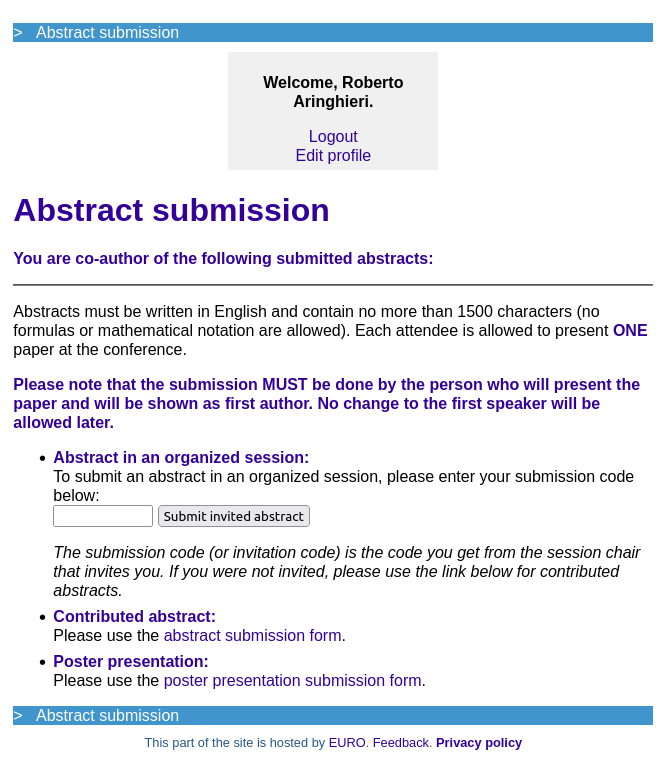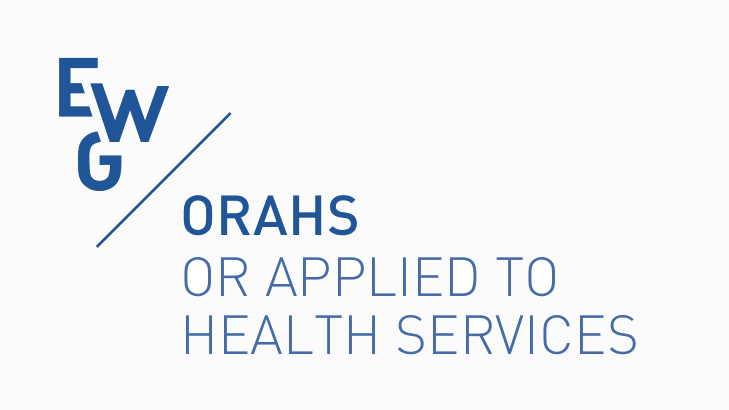Submissions are virtually closed. This year we establish the highest number of submissions for the ORAHS conference!
As of today, 6 May, we received 135 abstracts (including 4 discussion session talks). Including the 2 plenaries, the scientific program will be based on 137 contributions, 18 more than the previous record dated 2007.
Further, the poster session will be animated by 11 posters, and some of them (those with a PhD student author) will compete for the Steve Gallivan Award.The 50th ORAHS conference is intended as an opportunity to ponder on 50 years of health operational research and its practical and methodological impact. The conference’s theme can therefore only be “Making an impact. Reflecting on 50 years of healthcare operational research”.
This theme will be explored through plenaries and special sessions in addition to the usual regular talk, discussion, and poster sessions. Further, all submitted posters by doctoral students will be nominated for the Steve Gallivan Award (here).
For any questions related to the scientific program please write to program-orahs2024@di.unito.it.
All contents must be written in English and contain no more than 1500 characters (no formulas or mathematical notation are allowed). The deadlines for all types of submission is April 15th, 2024 April 30th, 2024.
Poster guidelines:
- Posters must be printed in A0 format with either landscape or portrait orientation
- Authors are asked to pitch their posters with a brief talk (2-3 minutes) during a dedicated “poster pitch session” prior to the poster session
- Please indicate if the presenter of the poster is a PhD student
- Submit as poster presentation in the EURO abstract submission system (see picture on the right)
Regular talk guidelines:
- Presentation time ranges between 20 and 30 minutes including time for discussion
- Submit as contributed abstract in the EURO abstract submission system (see picture on the right)
Discussion session guidelines:
- Presentation time should not exceed 5 minutes to reserve at least 15 minutes for discussion
- Presentation must contain open questions regarding the general research direction, methodology, the interpretation of results, etc.
- Contributions to discussion sessions should not be short regular talk
- Non-scientific discussions on the state of the field, current and future challenges are encouraged
- Submit the abstract using the submission code 6aa394ec in the EURO abstract submission system (see picture on the right)

Each participant is only allowed to present one abstract/poster/discussion session at the conference, but it is allowed to have multiple submissions as non-presenter.
Organised sessions
If you are interested in organising a session, please write to program-orahs2024@di.unito.it. Currently, the organised sessions are the following:
- Integrated Planning in Healthcare, organised by Melanie Reuter-Oppermann, Sean Manzi, Gréanne Leeftink. Submission code: 2413f353.
- Analytics for Mis/Disinformation in Healthcare, organised by Ozgur Araz. Submission code: 66258ffb.
- Advances in Health Economics and Healthcare Management, organised by Paolo Landa and Maude Laberge. Submission code: 6d3309ae.
- Transportation in Healthcare and social services, organised by Ana María Anaya-Arenas. Submission code: 3f143cdc.
- Pharmaceuticals Public Policy and Regulation: Exploring pathways to improving access, affordability and availability of medicines, organised by R. Kazakov. Submission code: f1f898b5.
Special Issues
We aim to provide conference participants with the best publication opportunities! Please visit the page for the special issues regularly for updates.
Topics
Please use at least one of the topics below as a keyword when submitting your presentation abstract and/or poster abstract. The topics, keywords, and abstracts will help us to schedule your talk appropriately. If you want to include a keyword not on the list, please contact the organisation committee via program-orahs2024@di.unito.it.
- (Multi) appointment scheduling
- Access and waiting list
- Ambulance management
- Analytics
- Artificial Intelligence
- Benchmarking
- Capacity and network planning
- Care Pathways
- Clinical modelling
- Cost effectiveness and health economics
- Data analysis and risk management
- Decision support
- Disaster management
- e-Health
- Emergency Department
- Emergency Medical Service
- Epidemiology and disease modelling
- Forecasting
- Health Services Research
- Healthcare logistics
- Healthcare management
- Healthcare policy modelling
- Home care and Long Term Care
- Humanitarian logistics
- Implementation Science
- Integrated planning of health services
- Modelling and simulation
- Operating room planning and scheduling
- Optimization algorithms
- Patient flow
- Patient scheduling
- Performance evaluation
- Process optimisation
- Resource scheduling
- Screening and prevention
- Staffing and capacity planning
- Statistical modelling
- Strategic and operational planning
- Teaching OR in health care
- Workforce planning and scheduling




